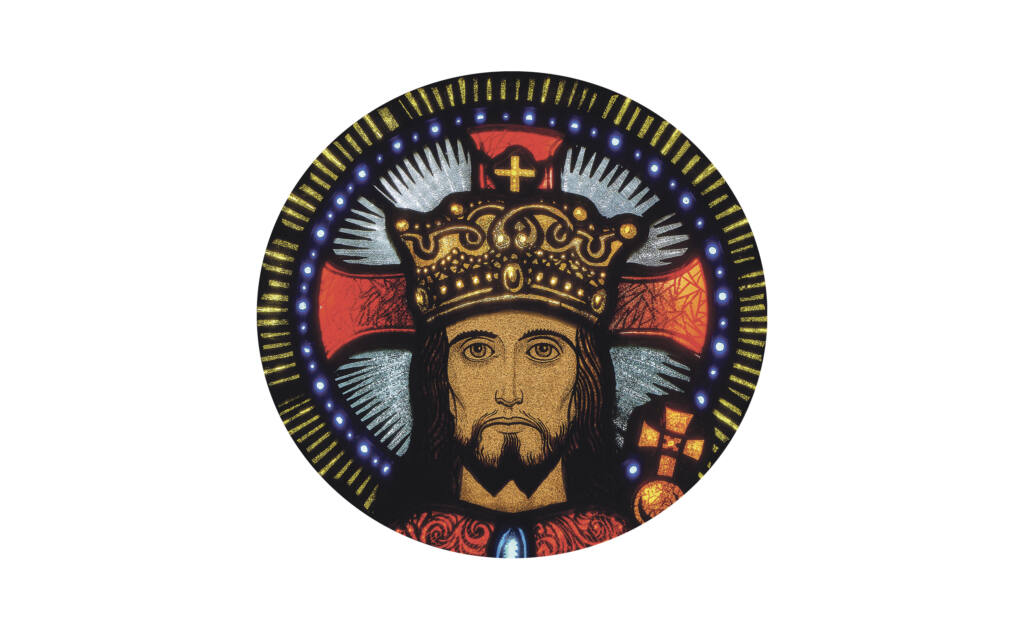WelCom November 2021
The Church celebrates the Feast of Christ the King – also called Solemnity of Our Lord Jesus Christ, King of the Universe – on the last Sunday of the liturgical year. The Feast was established by Pope Pius XI in 1925 with his encyclical Quas primas, to respond to a world that was rejecting Christ and was being dominated by secularism and pessimism.
Originally, it was celebrated on the last Sunday in October, immediately preceding the Feast of All Saints. But in the revised liturgical calendar promulgated by Pope Paul VI in 1969, it was moved to the last Sunday of Ordinary Time – immediately preceding Advent – where its theme of Christ’s ‘dominion over all aspects of our lives’ made it a fitting end to the liturgical year. This year, the Feast is on Sunday 21 November.
Fr James Lyons
Terrorist attacks have become a feature of the early years of the 21st century.
No country, not even our own, has been safe from the whim of crazed extremists. The whole world, it seems, is being targeted by the bitter, the misguided or the insane.
There is also a growing concern over climate change. It’s no longer a theory that thousands of homes and businesses near our coast lines are under threat from rising
sea levels.
Then along comes Covid, a pandemic that has locked down countries, threatened health, livelihoods and national economies, and is in no hurry to leave.
Such a chaotic state of affairs creates a feeling of helplessness among whole populations. The reaction, what’s the world coming to, gets overridden by, what’s the point of even trying – nothing I do will make
a difference!
Truth
When Jesus told Pilate he’d come to bear witness to the truth, he knew he’d sealed his fate.
Pilate’s response, What is truth? is the response of a person whose mind is wearied from alternatives and compromise and closed to the possibility of finding the key to a completely satisfying life.
Jesus could not reply with any hope of breaking through the hardened shell of cynicism and non-belief. He admitted before Pilate that he was a king. That must have sounded phony and stupid. His rough appearance, his ragged band of followers, his detractors labelling him a trouble-maker: Pilate couldn’t possibly take Jesus seriously. The human side of Jesus made him think the same of himself – to the point where, on the cross, he almost despaired of God, crying out My God, my God, why have you abandoned me? [Matthew 27:46]
“Jesus says, ‘I am the way, the truth, the life.’”
John 14: 6
Faith
What sustained him was the conviction that his kingdom was not of this world, so he couldn’t expect to be understood or accepted by anyone who did not see with his eyes, the eyes of faith.
Jesus described the kingdom with a variety of images:
- a seed growing into a sheltering bush;
- a net cast into the sea gathering all kinds of life;
- a woman rejoicing over the discovery of a lost treasure;
- a father throwing a party for his returning wayward son.
There was always a gentleness, a welcoming theme and a sense of celebration in his understanding of ‘kingdom’. Healing and forgiveness, service and sharing were the insignias by which his ‘army’ would be identified.
Those who are on the side of truth listen to my voice. The truth within each of us is that we want to live peaceful, contented and fulfilled lives. Jesus says, I am the way, the truth, the life [John 14:6].
Forgiveness and prayer
If we really listen to his voice we will find our truth with him. That means, of course, a readiness to be forgiving, to pray for those who curse or harm us and to stand with those who are hurt or suffering. This puts a different face on our response to recent world events.
While neither toleration nor encouraging those who show total disregard for human values, we must pray for both victims and those guilty of abuse. And, knowing that the Islamic extremists do not represent the Muslim faith, we must seek ways of bringing together all faiths and cultures as a spiritual buffer to prevent the virus of terrorism spreading further.
Climate change and pandemics call for a similar response – an acceptance of personal responsibility for the care of our common home, a refusal to be drawn into conspiracy theories that misdirect and hamper efforts to put things right, and a hope-filled attitude that allows an active faith to play its part.
The truth of Jesus, he assures us, will set us free. Helping to heal, forgiving, serving and sharing are the keys that unlock fear and usher in the reign of justice and peace, health and happiness.
